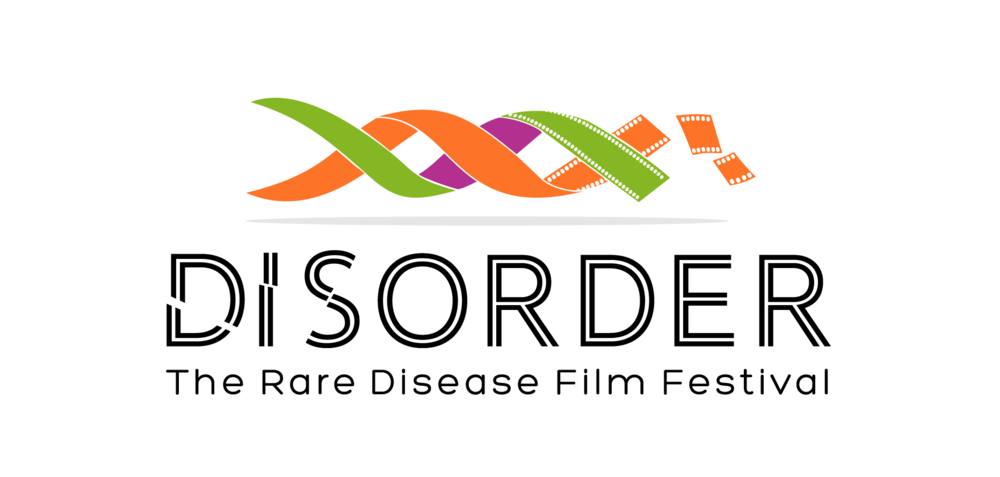Imagine a major Hollywood film where a woman learns her future will include having a baby girl with a rare disease and watching her suffer and die as a teenager. She sees all the events of her daughters' life clearly including the joys. She also sees that her husband will not handle this well and will leave her. Knowing all this she chooses not to change a thing. As the not-yet-mother tells us “Despite knowing the journey and where it will lead, I embrace it. And I welcome every moment of it.” If that's not a rare disease parent's story, what is?
But most people wouldn't summarize the 2016 film “Arrival” like my paragraph above. That paragraph covers the first five minutes and the closing twenty five, in between there's a lot of cool stuff about aliens visiting earth and humans trying to learn their language.
I have seen movie reviews describe the daughter Hannah's disease as cancer. The film never says cancer. I blame some common cinema shorthand (laziness?) of showing a shaved head on a patient to indicate illness --it must be cancer. Of course other terminal diseases might produce a need to shave your head and some cancers are rare. More important to me is when Louise describes the illness as a “very rare disease.”
The difficulty of changing your understanding is at the core of the film and the short story. On screen we see our heroes enter the alien ship and their first dose of the alien, the different, the unexpected is when the ground shifts beneath them. Gravity itself shifts. The wall is no longer the wall but the floor. Their perspective has already been forced to tilt ninety degrees. It is a clue (the humans don't pick up on) that they will need to see things differently if they want to understand the alien language and world view. Don't assume left to right or top to bottom. Those of us who have faced a rare disease diagnosis know how completely it can upend your world view and force you to begin seeing everything differently. When you hear hoof beats don't rule out zebras.
The film and the short story it was based on operate on a few levels. The Ted Chiang story “Story of Your Life” doesn't feature cancer or a rare disease but the daughter does die young. This version gives a bit more equal time to the story of the daughter's life than we see in the film. Both versions present some interesting pitfalls that come from assuming we understand what we have never encountered, like an alien language. An apocryphal example was how kangaroos got their name. The colonists ask the aboriginals what the animals were called. They replied “kang guru”. And years later it was discovered kang guru translates to “what did you say?” But the example I like better is from the book, it's not a misunderstanding, just an unknown (to me) word origin. “Infant,” our linguistics professor points out, means one without speech. Thematically that's important to the story.
It's important in my life as a rare disease dad too. My ten year old boy has no speech as a result of Menkes disease. Other aspects of his development are far behind those of a ten year old too. And often a young boy or girl (younger than Lucas) will point to him in his wheelchair and say “look a baby”. Sometimes it bothers me. I silently reply “He's older than you.” Most of the time I'm happy they want to connect. Now I know in one sense he still is an infant.
Trying to connect with the unknown is the major theme of both versions of this story. We connect best through communication. But language has its biases. Learning a new language can involve learning a new culture. How many of us in the rare disease space have had to learn new languages we never thought we'd need? – the language of geneticists, or physical therapists, of educators and their IEPs. And perhaps a new language of compassionate concern and consideration. In the film learning the alien language is a gift of perceiving time as non-sequential. Cracking the code turns the unknown into not only the known but into all things knowable: including seeing the future and the past.
While my son was still in the womb an ultrasound showed echogenic bowel. This can be an indicator that a child might be born with Downs Syndrome. Many people would choose to follow up that indication with a test of the amniotic fluid which can show more conclusively if it is Downs. The test has some risks. My wife and I were a bit confused as to why we might want that test. The OB GYN was tip toeing around some option. It slowly dawned on us and we put the words out there for her “Oh because we might decided to terminate the pregnancy?” She nodded. “We won't,” we said. And so there was no need for the test. We all thought.
A year later we had a diagnosis of Menkes Disease complete with the prognosis that Lucas would live 3-10 years. We searched for clues as to our new future. We searched the past for clues we might have missed to warn us. In conversation with a dear friend I mentioned the echogenic bowel. Her reply has stayed with me and often sustained me ever since. She said “There you see? You had already decided you would handle this.”
That feels a bit like Amy Adams' line about knowing the journey and where it will lead, and embracing every moment of it.



